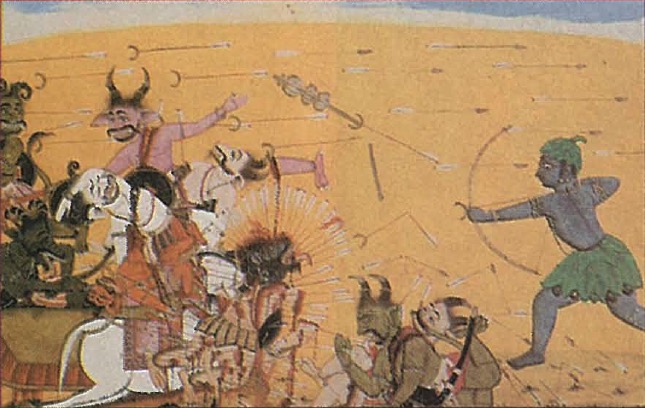By the Editor
Has it always been this way, this anguishing about who we are, this defensiveness bordering on paranoia about our cultural turf and collective identity? Or has something changed and no one sent out a notice? Clearly, all around us groups are reevaluating their intellectual and social histories, reestablishing their place in the human cosmos. It’s a tribal thing, though tribes can be as big as all of Islam or Buddhism. Hopi Indians in New Mexico are fighting the US government to keep electricity away from sacred sites. Europe’s Pagans are coming out of the closet, advancing themselves as an alternative to the relatively young cultures that sidelined them. In many places once-conquered peoples and their once-silenced heritages are making a comeback that their once-smug conquerors find threatening.
In the media cultures are clashing as never before. Witness the page 22 feature on the Miss World beauty pageant in Bangalore, India. Not that such things never happen in India. They do, but seldom have they engendered such a virulent response from the masses. The world took it seriously when that young man immolated himself in protest of what he deemed a kind of human “cattle show” that spelled, for him, the unacceptable desecration of Indian womanhood. Though one man died, tens of thousands lived to strike, blockade, march, parody and speak out against the commercialization of a woman’s body, reflecting a similar sensibility that is awakening in the US, with beauty contests quietly refocusing on contestants’ oratory, personality and talent.
Yet, many educated Indians sided with South African journalist Ramesh Jethalal who offered that “In matters of sex, Hindus as a rule avoid the extremes of prudery and prurience,” calling the protest “fatuous and asinine” and the protesters “freaks and fanatics.” And there are other such clashes in this issue: one on foreign media invading India, another on foreign morals invading Malaysia, a third on foreign missionaries appropriating Hindu sacred icons, and more. We didn’t even have space to write about the township of 500 cowherders who decided to ban television from their borders lest precious time in the dairys be squandered.
Business is perhaps the most talked-about crossroads where these clashes happen. McDonald’s felt the crunch with the Hindu aversion to beef-eating and caved in last year, opening the only one of its 20,000-plus restaurants that does not serve cow carcasses. Pepsi and Coca Cola have struggled mightily to gain a foothold in Bharat, and had to learn new ways of operating a company.
In its November 25 issue, Newsweek noted the trend for corporate heads of multinationals to come from other cultures. In dollar terms, the transnational mergers and acquisitions of companies has grown from a few billion dollars in 1980 to nearly 250 billion in 1996. Companies no longer tie themselves to geographic or political boundaries; they play in any country where it pays. British Telecom merged with the Yankee firm MCI, and folks wondered how the Brits would take the new American bosses. A tall Texas woman, Marjorie Scardino, who once ran a shrimp boat, was named corporate head of a UK publishing firm, Pearson. In Germany, Ernie Drew, another Texan, made it on the board of Hoechst, a chemical giant, and soon the meetings were conducted nicht auf Deutsch but in English! More amazing yet is the head of Japan’s auto titan, Mazda. Last June Scotsman Henry Wallace was appointed to lead the failing company, and he doesn’t even speak Japanese! Unthinkable a few years back, such things are happening fast and furiously now.
Global cultural invasion is empowered by technology. Phones, CPUs and TVs are ubiquitous, FedEx can send a package to any remote hamlet, and films are instantly translated, dubbed and repackaged for foreign distribution, a task that took years before and only months now. If you loved the old ways, the new ones can be downright loathsome. On top of all this comes the newest interloper, the Internet, rushing information, ideas and images across borders in a nanosecond, without stopping to be frisked, without flashing a visa or declaring the purpose of its visit.
Though this is changing fast, so far the Internet is a North American and European tool, and other cultures are rightly fearful of its power to change and inform citizens. China is working frantically to have its own Internet. Malaysia is creating JARING (a national net that will sift out unfit content from abroad) and Arabian nations are outright outlawing it. The Internet provides the ultimate in cultural traffic and therefore collisions.
But wait a minute! Do I hear the sound of one culture clashing? Outside of Asia these very struggles proliferate. The mythic iconography of Michael Jackson, the evils of Internet, the tyranny of television, the menace of materialism, the loss of childhood innocence are all on the minds and agendas in the West, too. Peoples of all nations are clashing with the selfsame culture, usually branded Westernization.
Those who worry underestimate the staying power of our heritage, and overestimate the damage that changes bring. To fight for zero change is retrothink, reminiscent of those who struggled vainly against the automobile and the airplane (remember the fatuous argument “If God wanted man to fly, He would have given us wings”?). Would we want to live today in the one-bath-a-month US cowboy culture? The Japanese Samurai manner? India’s Harappan society? Most would say no. Our global Hindu family is strong enough to have our chapatti and eat it too: to allow some among us to keep the ancient fires burning, even resisting modernizations, and to encourage others to explore and experiment. Even as individuals, we can run after change while keeping both feet on the Eternal Path. In fact, there is no way on Earth that we can destroy the Sanatana Dharma, anymore than we can destroy sunshine. So, stop worrying, everyone. Be happy. Better yet, be blissful.
